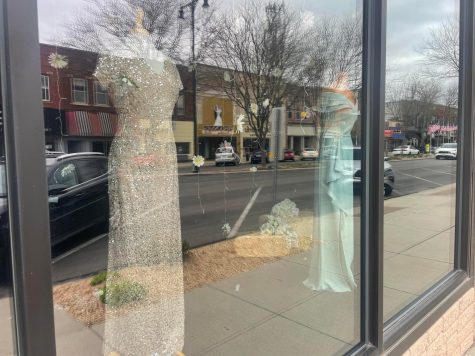Fraternities Drop Student Lobbying Against Rape Investigations

April 28, 2015
New York– College fraternities and sororities, facing an online protest by hundreds of their members, won’t ask students to push for rules making it harder for universities to investigate campus rape claims.
The groups’ political arm had planned to enlist the scores of students arriving on Capitol Hill on Wednesday for an annual gathering to lobby for a requirement that the criminal justice system resolve cases before universities investigate them or hand down punishments. The organization said it wanted to ensure fairness for both the accused and the alleged victim.
Amid criticism that their initiative would make campuses unsafe, the Fraternity & Sorority Political Action Committee, or “FratPAC,” and two other national groups reversed course on April 17 and said students wouldn’t be lobbying on “proposals on campus sexual assault” during visits with lawmakers, according to a letter reviewed by Bloomberg News.
“People were asking themselves, ‘Can I go lobby for something I don’t support?’” said Julia Dixon, a 2011 University of Akron graduate and sorority member who runs a victims’ advocacy group and helped organize opposition to the Greek groups’ lobbying effort.
Ten-year-old FratPAC, which has raised about $2.1 million in donations for congressional candidates, invites students every year to Capitol Hill to lobby for tax breaks for fraternity houses. In 2012, it also fought against federal anti-hazing legislation, and this year it planned to focus on sex assault legislation as well.
The proposal by FratPAC and the other groups — the North-American Interfraternity Conference, which represents 74 national fraternities, and the National Panhellenic Conference, which represents 26 sororities — would bar universities from looking into allegations of sex assault until after police completed an investigation.
The plan, first reported by Bloomberg News on March 24, sparked complaints from college administrators, victims’ advocates and U.S. Sen. Kirsten Gillibrand, who said it would hinder campus efforts to address allegations of sex assault promptly and punish offenders.
Since then, more than 600 fraternity and sorority members and others signed an online petition assailing the proposal as “harmful for Greek life” and urging the groups to withdraw it.
“Without a university’s ability to investigate, the institution is stripped of control of a major part of their campus,” according to the petition.
The Greek groups “jumped the gun without consulting survivors” of sex assault, said Matt Leibowitz, 23, a Wesleyan University graduate and fraternity member who drafted the petition with Dixon. “The vast majority of Greek leadership recognize that we need to do something more” to combat sex assault, said Leibowitz, who runs a sexual-assault prevention group for fraternity members.
The national fraternity and sorority organizations said that they want to hear lawmakers’ insights on the challenge of combating sexual violence before deciding on legislation to back, according to a statement on Monday.
“While we are not prepared to support any legislation at this time, we expect our conversations to lead us to actively endorse legislative proposals later in the year when Congress considers reauthorizing the Higher Education Act,” the groups said.
In their April 17 letter, they said they wouldn’t ignore sexual assault entirely during their congressional visits.
“We will use a portion of our time in congressional offices to talk about what our organizations are already doing to combat campus sexual assault,” the groups wrote.
FratPAC and the other groups may have changed strategy but not their original goal, said Mark Koepsell, who heads the Association of Fraternity/Sorority Advisors, which represents faculty and administrators.
Kevin Kruger, president of the Washington-based Student Affairs Administrators in Higher Education, a trade group, said some individual fraternities told him they also opposed the national groups’ initiative.
These fraternities, which he declined to name, recognize that some victims of sex assault prefer to pursue campus adjudications instead of dealing with police, Kruger said. They also don’t want Greek houses to be “at war” with colleges over the handling of sex-assault cases, according to Kruger. He said he welcomed FratPAC’s step back.
“It gives us a pause and opportunity to engage in more of a conversation” with fraternities, he said.
———
©2015 Bloomberg News
Visit Bloomberg News at www.bloomberg.com
Distributed by Tribune Content Agency, LLC.















